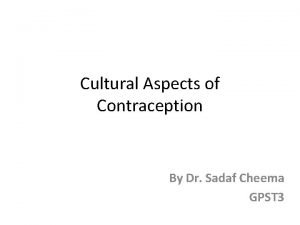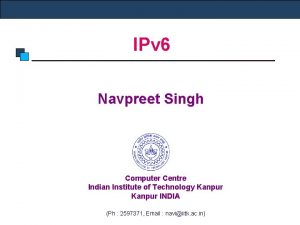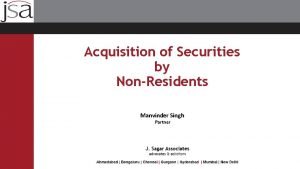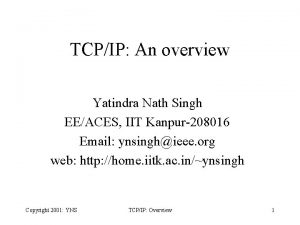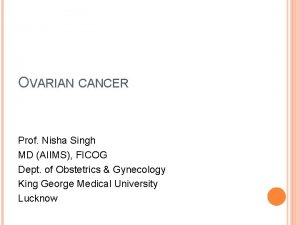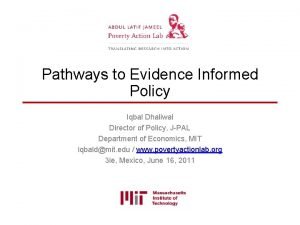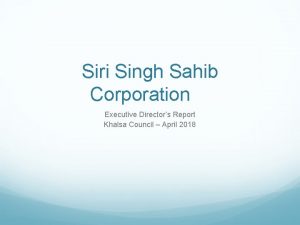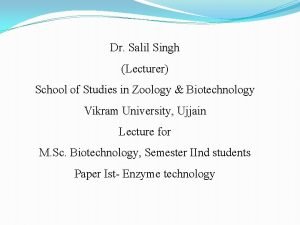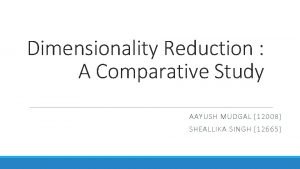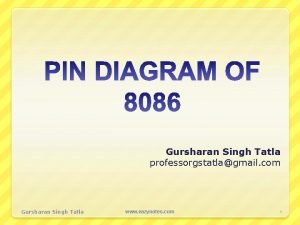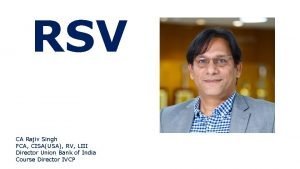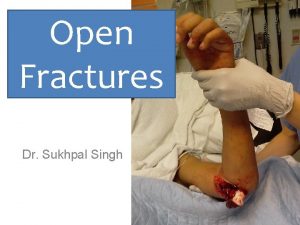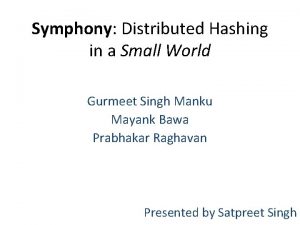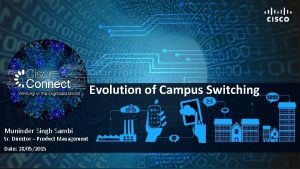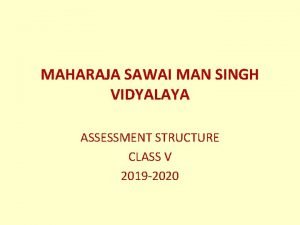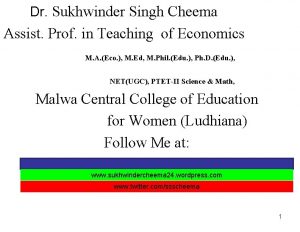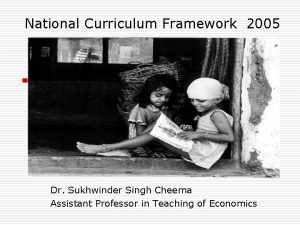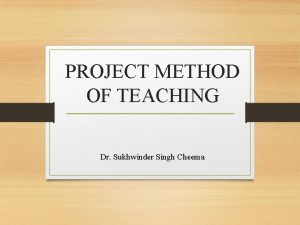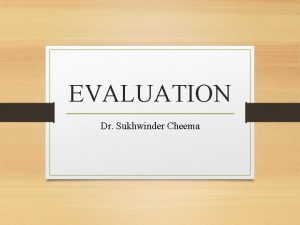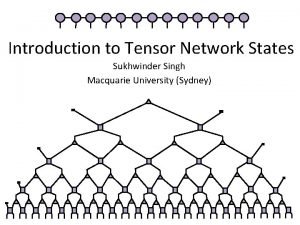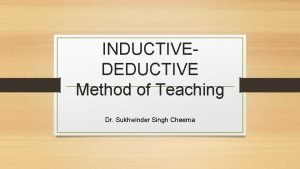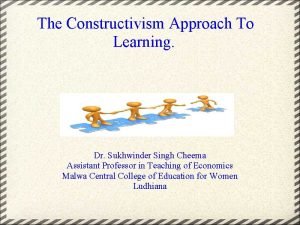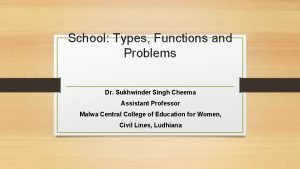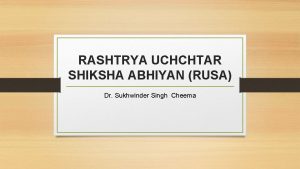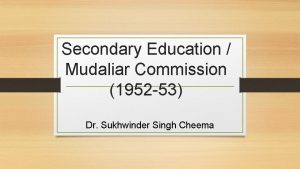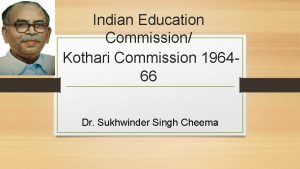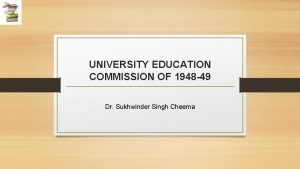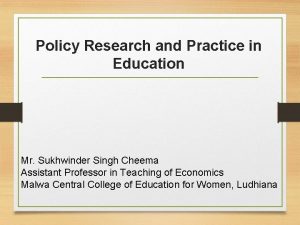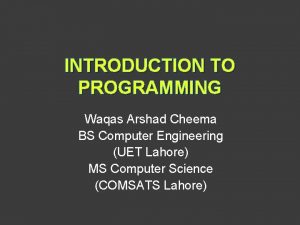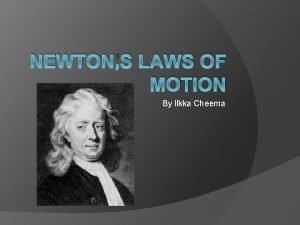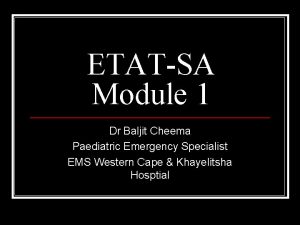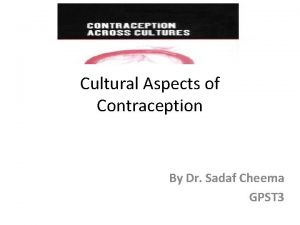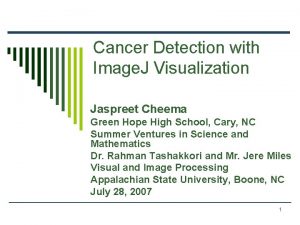What is education Mr Sukhwinder Singh Cheema Assistant






































- Slides: 38

What is education? Mr. Sukhwinder Singh Cheema Assistant Professor in Teaching of Economics Malwa Central College of Education for Women

Etymological Meaning • Education is derived from Latin word ‘Educare’ which mean to bring up or to nourish • Educere is also Latin word – to lead out the child from the darkness of ignorance to light of knowledge or • to draw out best of mind, head and heart of the child. • Educatum – the act of training or teaching

Words in other Languages • The word ‘Shiksha’ has its roots in the Sanskrit word “shas” which mean to discipline, to control, to instruct • Vidya from the Sanskrit verbal root “vid” to know • Gyan (Hindi)- knowledge • Taleem (Urdu)- education

Synonyms of Education • • • Pedagogy from GK. “to lead a boy” Learning Knowledge Teaching Training

Ancient Indian Concept • Rig Veda “Education is something which makes a man self-reliant and selfless” • Upanishads “Education is that whose endproduct is salvation” • Shankaracharya “ Education is the realization of the self” • Kautilya “Education means training for the country and love for the nation”

Modren Indian Thinkers • By education I mean an all-round drawing out of the best in child and man’s body, mind and spirit. Mahatma Gandhi • Education is the manifestation of perfection already in man. Like fire in a piece of flint, knowledge exists in the mind. Suggestion is the friction; which brings it out. Swami Vivekananda • The highest education is that which does not merely give us information but makes our life in harmony with all existence.

Modren Indian Thinkers • Education according to Indian tradition is not merely a means of earning a living; nor it is only a nursery of thought or a school for citizenship. It is initiation into the life of spirit and training of human souls in the pursuit of truth and the practice of virtue. Radhakrishnan

Western Concept • Plato “ Education is the capacity to feel pleasure and pain at the right moment” • Aristotle “Education is the creation of a sound mind in a sound body” • Pestalozzi “Education is natural , harmonious and progressive development of man’s innate powers”

Western Thinkers • Dewey “Education is the process of living through a continuous reconstruction of experiences”

Redden’s Definition “Education is the deliberate and systematic influence, exerted by the mature person upon the immature though instruction, discipline and harmonious development of physical, intellectual, aesthetic, social and spiritual powers of the human being, according to individual and social needs and directed towards the union of the educant with his creator at the final end”

Narrow Meaning of Education that is confined to four walls of the classroom of school/University. It is not a life long process it is over with completion of schooling. It is process of influencing the child behaviour through planned and systematized and designed programme. T. Raymont

Broader Meaning of Education is a life long process and is prompted by every temptation/experience of life. Narrow Meaning of Education

Traditional Concept of Education Teacher Student Bi-Polar Process

Modern Concept of Education Teacher Curriculum & Environment Student Tri-polar Process



The Vocational Aim: The vocational aim is also known as “the utilitarian aim or the bread and butter aim. ” Education must help the child to earn his livelihood. Education, therefore, must prepare the child for some future profession or vacation or trade. The vocational aim is a narrow aim of education. Therefore, the vocational aim is not a complete aim by itself.

The Knowledge or Information Aim Educationists who hold the knowledge or information aim of education justify their stand with powerful arguments. They argue that knowledge is indispensable for all right action and it is the source of all power. “It is knowledge which makes a realist a visionary successful in any profession

The Culture Aim The cultural aim of education has been suggested to supplement the narrow view of knowledge aim. The cultural aim of education is no doubt a nice aim as it produces men of culture. But it is ambiguous and has too many meanings. It cannot serve as the major aim of education.

The Character Formation Aim or the Moral Aim Character is the cream of life and, as such, it should be the aim of education. Vivekananda and Gandhi both emphasized character building in education. Character formation or moral education is concerned with the whole conduct of man. The Secondary Education Commission (195152) has rightly remarked: “character education has to be visualized not in a social vacuum but with reference to contemporary socio-economic and political situation. ” Therefore, we can conclude that only character building cannot be

The Spiritual Aim The idealist thinkers have opined that the spiritual development of an individual should be the supreme aim of education. Mahatma Gandhi has attached great importance to spiritual vales in education

The Adjustment Aim Adjustment is the primary rule of human life. Without adjustment to environment none can survive. Life is a struggle for adjustment. In the words of Horney: “Education should be man’s adjustment to his nature, to his fellows and to the ultimate nature of the cosmos.

The Leisure Aim “Free and unoccupied time” of an individual is generally known as leisure. It is a time when we can use it in a creative way. During leisure we can pursue an activity for own sake and not for earning a living, which is dull and monotonous. During leisure we can also regain our lost energy and enthusiasm. Leisure can make our life dynamic and charming.

The Citizenship Training Aim A citizen has to perform multifarious civic duties and responsibilities. Children should be so trained by education that they can successfully discharge their various civic duties and responsibilities. The Secondary Education Commission in India (1951 -1952) has greatly emphasized citizenship training in schools. Such training includes the development of certain qualities to character such as clear thinking, clearness in speech and writing, art of community living, co-operation, toleration, sense of

The Complete Living Aim Some educationists have insisted upon the need of an all-comprehensive aim of education. This viewpoint has led to the development of two aims- “the complete living aim” and the “harmonious development aim. ” According to Horney “there is no one final aim, subordinating all lesser aims to itself… There is something in all these aims but not everything in any one of them. ”

The Harmonious Development Aim Educationists are of the opinion that all the powers and capacities inherited by a child should be developed harmoniously and simultaneously. Gandhiji is a strong advocate of the harmonious development

The Social Aim From the above discussion it is clearly evident that no individual can live and grow without social context. Individual life became unbearable to man and that is why he formed society. Individual security and welfare depend on the society. Individual improvement is conditioned by social progress. Education should make each individual socially efficient. A socially efficient individual is able to earn his livelihood.

Indian University Commission Just after independence an education commission was set up to enquire into the various problems of education, particularly higher education, and to recommend proposals for its improvements. It is commonly known as Radhakrishnan Commission as Dr. Commission, 1948 -49. This Commission has given many important recommendations regarding higher education. It has also formulated the aims of education of India.

Secondary Education Commission For reconstruction of Secondary Education, Secondary Education Commission was set up (1952 -53) under the chairmanship of Dr. Lakshmanswami Mudaliar, a noted educationist and ex-Vice Chancellor of the Madras University. The Commission has made important recommendations for the reconstruction and development of secondary education in the country. The Commission formulated the following aims of Secondary Education

1. Developing Democratic Citizenship The adoption of the goals of democracy and socialism necessitate the development of habits, attitude and qualities of character, which will enable its citizens to bear worthily the responsibilities of democratic citizenship. Among theses qualities, which are to be fostered through curricular and cocurricular activities in secondary schools, are: • The capacity for clear thinking (clearness in speech and writing); • The scientific attitude of mind; • Receptivity to new ideas; • Respect for the dignity and worth of every individual ; • The ability to live harmoniously with one another

2. Vocational Efficiency One of the urgent problems of the country was to improve productive efficiency and to increase the national wealth and thereby to raise the standard of living. In this respect the commission recommended fostering dignity of manual labour and promotion of work and technical skill for the advancement of industry and technology.

3. Development Personality or Character An important aim of democratic education is the all-round development of every individual’s personality. This requires that education should take into account all his needs- psychological, social, emotional, and practical and cater to all of them. It should provide in him the sources of creative energy so that he may be able to appreciate his cultural heritage, to cultivate rich interests, which he can pursue in his leisure, and contribute in later life to the development of this heritage. Hence, education should be so organized that subjects like life, art, craft, music, dancing and the development of creative

4. Education for leadership Since the youth of today assume leadership in different walks of life tomorrow, special function of the secondary education is to train persons who will be able to assume the responsibility of leadership in social, political, industrial and cultural fields. To achieve success in this work, the qualities of justice, courage, discipline, tolerance, wisdom, sacrifice, initiative, understanding of social issues, civic as well as vocational efficiency should be developed in the young men and women of our country.

The Indian Education Commission on Educational Aims (1964 -66) In July 1964 the Government of India set up an Education Commission to overhaul and reconstruct the entire field of Indian education under the chairmanship of Dr. D. S. Kothari. The Commission submitted its comprehensive report in July 1966. According to it education should aim at: • Increasing national productivity; • Achieving social and national integration;

National Education Policy – 1968 - Challenge of Education Policy Perspective Education as growth and development It is a modern concept of education. Change is the law of nature. Man undergoes changes and transformations from cradle to grave. These changes may be of different types such as physical, mental, moral and emotional. Two factors, training and environment condition every change. The original nature of man can be changed either by training on by his reaction to the environment. Whenever there is change there is growth. Through change, a living organism can take entirely a new shape and this again gives him powers to grow. Thus, Growing is education and getting education is growing.

Education as Process Socialization Education is a process both in the narrower as well as in the wider sense. Ancient people used to collect facts and information about nature for survival. This is nothing but education. In the wider sense, education is acquisition of experience throughout life. Experience brings changes in human life and behaviour. It is the primary function of formal education to

Education as social change and progress A society is a well-organized human community. A conglomeration of people may not create a society. There must be active co-operation and intimate interaction among the members of the community. A society is not constant or static. It is rather dynamic and subject to change. A society is composed of individuals and when the ideas of individuals change the society is bound to change. According to Maciver social change is a process, which influences and change human life in different directions. Change is the law of human life and society. The function of education is to maintain

Thanks
 Npe 1992 recommendations
Npe 1992 recommendations Raj birk
Raj birk Dr aamir cheema
Dr aamir cheema Sadaf cheema
Sadaf cheema Dr gurbaksh singh
Dr gurbaksh singh Navpreet singh iit kanpur
Navpreet singh iit kanpur Manvinder singh jsa
Manvinder singh jsa Dr saurav singh
Dr saurav singh Sukhjit singh de anza
Sukhjit singh de anza Yatindra nath singh
Yatindra nath singh Dr mayank singh
Dr mayank singh Mannu singh vs umadat pandey case
Mannu singh vs umadat pandey case Kartar singh committee
Kartar singh committee Summerpal singh gill
Summerpal singh gill Dr. vasu singh
Dr. vasu singh Nisha singh md
Nisha singh md Gursharan singh tatla
Gursharan singh tatla Maan singh sidhu
Maan singh sidhu Daljit nagra wife
Daljit nagra wife Dr nishi singh
Dr nishi singh Iqbal dhaliwal
Iqbal dhaliwal Dan singh bawa
Dan singh bawa Bakht singh
Bakht singh Ashish singh parihar
Ashish singh parihar Harj singh
Harj singh Siri singh sahib corporation
Siri singh sahib corporation Salil singh
Salil singh Sheallika singh
Sheallika singh Gursharan singh tatla
Gursharan singh tatla Maharaja sawai man singh vidyalaya
Maharaja sawai man singh vidyalaya Motivational interviewing stages of change
Motivational interviewing stages of change Ca rajiv singh
Ca rajiv singh Classification of open fractures
Classification of open fractures Gurmeet singh manku
Gurmeet singh manku Punjabi song
Punjabi song Basil singh
Basil singh Muninder singh sambi
Muninder singh sambi Mudaliar committee 1959
Mudaliar committee 1959 Maharaja sawai man singh vidyalaya
Maharaja sawai man singh vidyalaya



